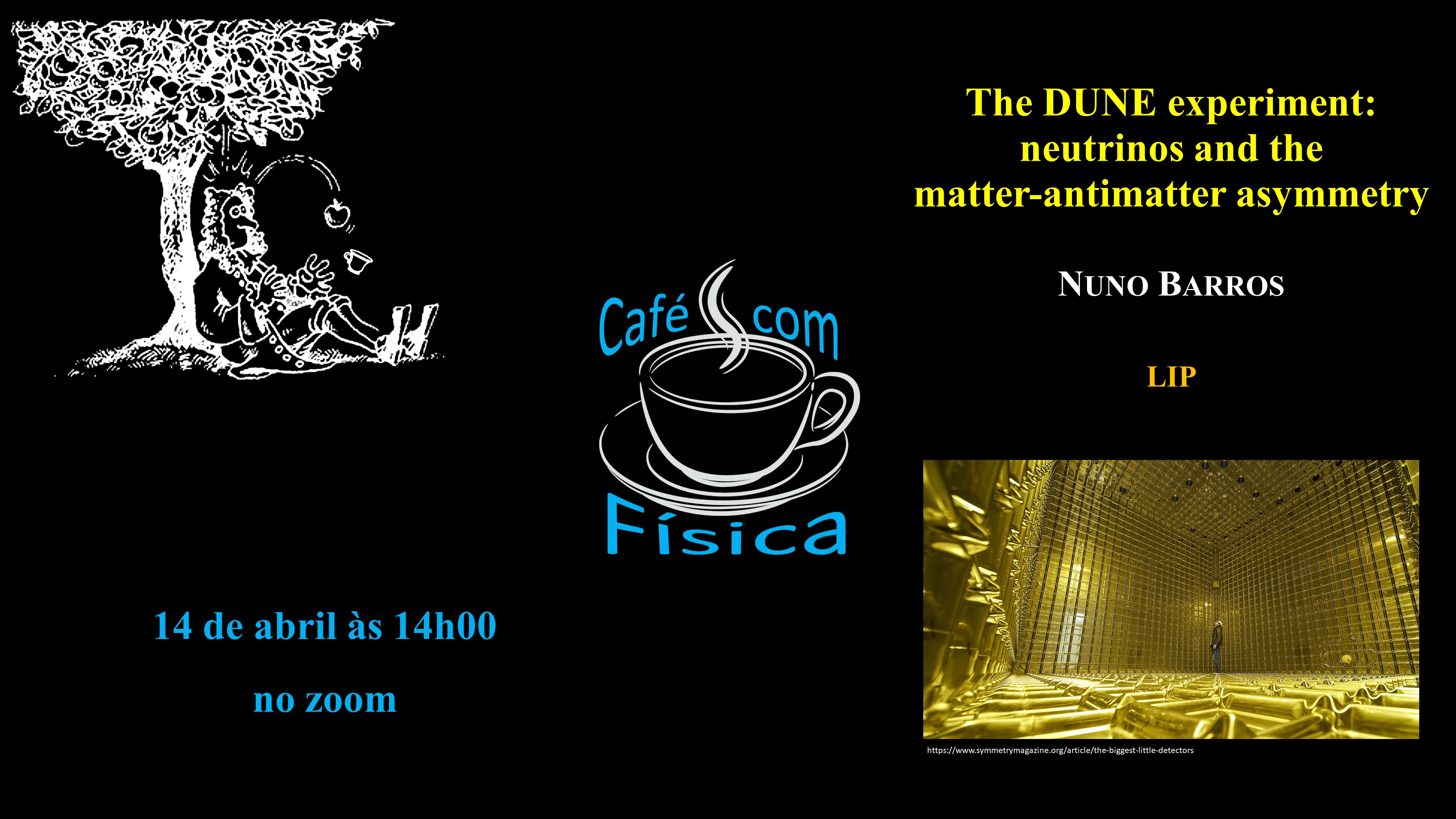Café com Física
The DUNE experiment: neutrinos and the matter-antimatter asymmetry
by
→
Portugal
Sala de Conferências (Departamento de Física FCTUC)
Sala de Conferências
Departamento de Física FCTUC
Universidade de Coimbra
Description

Neutrinos are one of the most fundamental and least understood particles. They have no electrical charge, transform into different types as they travel
and have an exceedingly small mass not predicted by the Standard Model of particle physics. As such, they provide an important tool for gaining a deeper understanding of the basic nature of the universe, providing a way to obtain information from otherwise unreachable places in time and space like inside the stars and the early universe.
The Deep Underground Neutrino Experiment (DUNE) is a next-generation long-baseline neutrino experiment. DUNE uses an intense neutrino beam fired from the Fermi National Accelerator Laboratory, and is composed of two detectors: one near the beam source and another 1300 km away with 40,000 ton Liquid Argon, located deep underground in the Homestake mine in South Dakota.
The main goals of this experiment are to further understand the properties of neutrinos, such as a comprehensive investigation of neutrino oscillations to test CP violation in the lepton sector - a condition necessary to explain the matter-antimatter asymmetry - , determining the ordering of the neutrino masses, and testing whether there are more than the three known types of neutrinos. The experiment will also pursue non-accelerator neutrino physics topics including atmospheric neutrino measurements, searches for nucleon decay, and potentially also a measurement of astrophysical neutrinos from a core-collapse supernova.
In this talk, an overview of neutrinos and their properties will be discussed, followed by a discussion of the next steps being taken in the context of the DUNE experiment.
Organised by
Filipe Veloso e Pedro Costa
